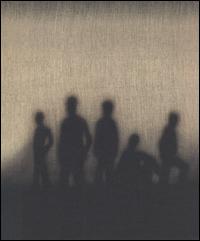Contents
Disc one
The first disc focuses on the period from 1961 through 1968, giving the first legitimate release on compact disc to four of five single sides the group recorded in 1965, the fifth previously released on 1994's Across the Great Divide . Opening with two tracks featuring an early incarnation of the group featuring Danko, Robertson and Helm (with Manuel on one track) backing Ronnie Hawkins, the disc goes into the first recordings of the group without Hawkins, with Helm assuming lead vocal duties. From there come the earliest tracks featuring the classic line-up, mostly 12-bar blues material, including the group's single sides, the earlier sides recorded as the Canadian Squires, the later sides as Levon and the Hawks. Sessions with Bob Dylan (mostly without Helm) and demo recordings close the disc. These recordings constitute one part of a larger set that will be released as From Bacon Fat to Judgement Day, chronicling the group's journey from 1957 to 1967.
Disc two
Disc two focuses on 1968, featuring all but one track either in its original or in an alternate or extended version from the group's debut album, as well as several outtakes, a few of which are new to the set. A number with Dylan recorded at a Woody Guthrie tribute concert (where the group performed as "the Crackers") and a few of the group's tracks from The Basement Tapes round out the disc.
Disc three
The third CD focuses on 1969 to 1971. Eight of twelve tracks from the group's eponymous second album and an early version of a ninth constitute the first part of the disc, with five of ten (with an early version of a sixth) from the third album, a handful of live numbers and a run-through of one track that would appear on the group's fourth album finish the disc.
Disc four
Disc four focuses on 1971 to 1973, opening with an additional four tracks from the group's fourth album. From there, nine tracks recorded during the shows that made up the group's fifth album, the live Rock of Ages , one of them previously unreleased. The disc closes with three tracks from various sessions in 1972 and 1973, two previously unreleased, and one track from the group's homage to early rock and roll, Moondog Matinee .
Disc five
The final audio disc focuses on 1973 to 1976, opening with a further three tracks and an outtake from Moondog Matinee. Three further tracks with Dylan follow, two of which were previously released on Planet Waves and Before the Flood . Three of eight tracks from the group's seventh album make up the middle of the disc. The group's last studio sessions, some of which was released on their final album for Capitol, as well as one previously unreleased live track follow. The disc closes with a handful of tracks from the live/studio hybrid The Last Waltz , recorded in 1976 and 1977 and released in 1978.
DVD
The sixth disc, a DVD, features various performances between 1970 and 1976. Among these are three of four performances the group did on their 1976 appearance on Saturday Night Live , two performances from Wembley Stadium, one performance from the sessions that produced their Rock of Ages album, two from the 1970 Festival Express tour and one from a rarely seen promotional video. All tracks are either previously unreleased in full or in total.
This page is based on this
Wikipedia article Text is available under the
CC BY-SA 4.0 license; additional terms may apply.
Images, videos and audio are available under their respective licenses.
